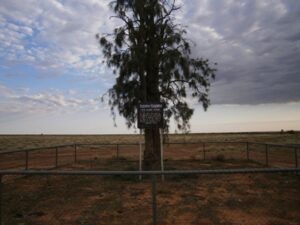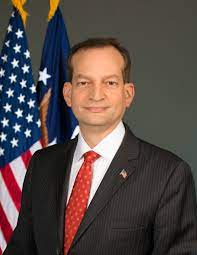Tomorrow all will be revealed – perhaps.
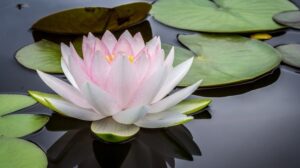 Whoever wins will be faced with having to govern, unlike what has happened over the past decade. This was the time of the lotus land; when the rich became richer and the dispossessed were harassed by false gods and more and more were caught in the culture of poverty.
Whoever wins will be faced with having to govern, unlike what has happened over the past decade. This was the time of the lotus land; when the rich became richer and the dispossessed were harassed by false gods and more and more were caught in the culture of poverty.
I remember when Whitlam went to the electorate with a number of proposals among which was the proposal for satellite cities, and consequently increased housing. Albury-Wodonga remains as the partial legacy, but then the two cities were well established. Later I was on a government committee picking over the residual Albury-Wodonga policy which had severely changed from the original vision; looking back we got a pass mark, but it could have been better.
In Opposition, Whitlam developed a whole raft of policies between 1969 and 1972, the most successful long term being Medibank later Medicare. At the same time, the Federal Government was going through a series of debilitating internal power struggles. However, the heavy emphasis on social reform by the Whitlam Government ran headlong into the 1973 oil crisis when the members of the Organization of Arab Petroleum Exporting Countries (OPEAC) led by Saudi Arabia proclaimed an oil embargo. The embargo was targeted at nations that had supported Israel during the Yom Kippur War. By the end of the embargo in March 1974, the price of oil had risen nearly 300 per cent, from US$3 per barrel to nearly $12 per barrel globally.
I well remember the big spending budget of 1973. It ignored the global situation, where there was a great deal of unrest in the Middle East with the Yom Kippur sorely testing Israel’s sovereignty. The Vietnam War was winding down, and its divisive impact on this country could not be underestimated. Here Whitlam read the mood to such an extent that the visit of the Coalition leader, Bill Snedden, to China in mid 1973 evoked no antipathy from his previously strongly anti-China Party.
Nevertheless, the response of Snedden to the Budget emphasised the inflationary effect of the Government’s ambitious social engineering.
Average earnings shot up 15.3 per cent, as the government backed big wage rises. Consumer prices rose 13.2 per cent, as global food shortages pushed up food prices. In October 1973, the OPEAC cartel doubled world oil prices. Inflation worldwide shot into double digits, and Australia slumped into recession together with the rest of the World.
Thus, I have a very acute sense of déjà vu with the post-election scenario with which the incoming government will be presented, given the confetti trail of electoral promises. The problem is that the two major parties seem to think that governing Australia is a late night poker game, with bids matched, bids being raised and a huge amount of bluffing, especially as most of the hands, if called out, would be found to be worthless.
From afar Trump has been a destructive force as he has fomented distrust – distrust in government and in a civilisation, the resultant of eons of interactions and at a cost of so many lives, so that in the end, people doubt their heritage in the face of false gods, which in the end prejudice our survival, not only as a nation but a viable world.
Putin has reminded us of how fragile the concept of globalisation is when you start a war in Europe, without giving any thought to how long it will last. He is one of the genre who believe in resolution by conflict – but you understand that if you lose, you lose big time. The problem of a huge loss, particularly of face, is that the word “resolution” gets dropped – and only the word “conflict” remains.
In the last week of a campaign in this country, all the Prime Minister can say is that he will change as the country, rather than emerging in the light, is trundling along in a handcart into the gloom.
Mate, there is a European war going on; Biden has a fragile grasp on a country which is in danger of imploding under the weight of the Trumpian mendacity and above all, climate change is the real challenge.
Instead of providing a strategy to work our way out of coal dependency, and the vice-like grip of the oil and gas producers, who pay very little if any tax, Australia needs to pursue a strategy to cope with increasing manifestations of climate change in floods and bushfires.
We have a hapless, self-pitying Prime Minister and a bodgie housing proposal, dumped on the electorate in the last week of the campaign. Otherwise, there is just divisive rhetoric penetrating further than the normal way that two major party democracies in the British tradition of dialectic operate.
No time during this electoral campaign has any politician in the Coalition or Labour Policy confronted the dilemma of a nationwide settlement policy to cope with the climate change. For example, the town of Gympie flooding three times in one year provides a clear example which Governments must confront, without giving mates inflated contracts without a tender process. All this rather than undertake a serious attempt in the face of climate change to flood and drought proof, fire proof and cyclone proof this country. This is an enormous yet essential task if we as Australians, as members of the human race, cling to survival.
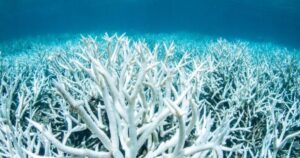
But what do we see? A proliferation of sports stadia proposals. Queensland, with its unique Great Barrier Reef, is under environmental threat because of a combination of neglect, deliberate despoliation and avarice, yet the State wants to waste money on circuses. Why? So that politicians can satiate their endless pool of low self-esteem with opening ceremonies and self-congratulatory pomp.
At least in 1972 Australia had a real choice.
A Patch of Persimmons
I once read that of all fruit, persimmons were the most consumed by humans. I read that the fruit was popular in Asia, and I remember having been to dinner at a friend’s place, and they produced persimmons for dessert. I got the impression that they were as unfamiliar with persimmons as I was, but were attracted by the shiny golden colour with the red blush, and my wife and I would be suitable guinea pigs.
Because of the tannin content, these persimmons were one of the astringent varieties, as I was to learn later. I described it at the time as my mouth being like Axminster carpet. As I alluded to that in my blog last week when discussing unlikely food consumption, how would I know what carpet tastes like. Then I remembered that as a child I was always falling over and copping a mouthful of carpet. Thus I would not be surprised if I do have multiple taste memories locked into my brain from falling on my face on so many carpets as an infant.
Since that astringent experience, I was at first wary before again eating persimmons. They were not common in Australian supermarkets, and before we ate one, we generally waited until it was soft, almost slush, and the skin disintegrating.
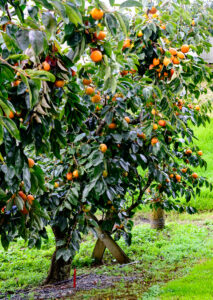 Last week, we were driving into the Northland town of Kerikeri, when we saw an orchard named Persimmon Patch. I had never been into a persimmon orchard, even though I had worked around the fruit growing areas of Victoria, where I would have expected to find them growing, if not in a dedicated orchard. I had once seen a persimmon tree growing in a suburban garden in Melbourne bearing fruit. Not much comparison.
Last week, we were driving into the Northland town of Kerikeri, when we saw an orchard named Persimmon Patch. I had never been into a persimmon orchard, even though I had worked around the fruit growing areas of Victoria, where I would have expected to find them growing, if not in a dedicated orchard. I had once seen a persimmon tree growing in a suburban garden in Melbourne bearing fruit. Not much comparison.
Here in Kerikeri there was a small 1.5 hectare orchard of persimmon trees. Most of them had been picked, but there was still a number of trees within the Patch which had fruit. Persimmons tend to be expensive in Australia but here a bag of a dozen or so costs NZ$10. Most of the trees in this orchard are Fuyu, which are not astringent.
They were nevertheless very firm, and so we put them in a brown paper bag with a couple of bananas for a couple of days. They remained firm, but as we were told they were a bit like an apple to eat, we cut them open, and even though they were firm, they were ripe; they had what some may say “crunch”. As they ripen and soften, unlike apples, they do not go bad. The flesh just detaches from the skin, which then just falls away.
In this case, being so cheap we were able to eat them until we looked like a persimmon – well not with the green topknot.
Persimmons apparently are berries, which I find extraordinary perhaps as they look like any other fruit trees. It is a pity the fruit is not more widely available, but there is a downside in its cultivation. As one US authority has written: “Because of the trees’ genetic mobility, there has never been a complete taxonomic study of persimmons, and growers can’t be completely sure what varieties they have. To make matters worse, persimmons are notoriously fickle; about fifty percent of grafts fail, and healthy trees can die for no obvious reason a couple years into their growth.”
However, introduction to unfamiliar fruit can leave lasting memories.
I well remember in the 1960s being confronted by my first avocado, and they were as hard as rocks because nobody at the dinner party had ever eaten one. Everyone gave up trying to eat them they were so hard.
Similarly, later when middle eastern cooking entered the Australian cuisine, so did the pomegranate. The immediate question was what to do with one. One cannot just bite into a pomegranate and have a good sensation. One needs to cut them open and gouge the red pearly seeds out of the white fibrous pith. Once synonymous with a certain exclusiveness, pomegranate is scattered everywhere now in salads. Grenadine, the juice of the pomegranate, bobs up in cocktails, and provides a characteristic intense red – Tequila Sunrise is one such cocktail.
Years ago, I casually mentioned my interest in pomegranate growing when I was visiting a hospital in the Sunraysia District in North-western Victoria. The then Chair of the hospital board looked a little uneasy after I said that I was growing pomegranates. I wondered why. Pomegranates were literally a new fruit on the Block. It turned out that he was proposing to invest heavily in pomegranate growing; and my comments suggested that I might be a potential investor that he did not know about, and my hospital visit was just a cover.
I should have told him that I was talking about of a couple of trees in my garden at home in Sydney.
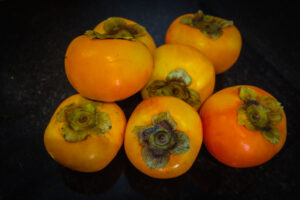
Old Men Get Lost
The following edited article from The Washington Post contains a warning, especially as the debate over abortion has been inflamed by the Alito draft decision that would effectively overturn Roe vs Wade. In the case of the candidate for the Warringah electorate, there is one Katherine Deves, whose definite views in relation to the gender alphabet have been equally divisive
She is an unattractive zealot. In themselves, the zealots are few, but bigotry and intolerance may only need shallow soil. Living in Sydney with (a)the rood-screen of a reactionary Roman Catholic Archbishop with his Pell association, (b) an Anglican diocese, the inheritor of the Marsden version of Protestantism, a cuckoo within Anglican nest and (c) a Hillsong-friendly Pentecostal Prime Minister as her mentor. All encapsulate the Australian version of Make America Great Again (MAGA), and like all weeds, poor soil is no bar to growth.
We can hope that this scenario does not become the norm here. The success or otherwise tomorrow, the rise of the independent women seeking a voice in government, will be a critical factor in stemming the nightmare of Trump primitivism, which masquerades as religion.
Use of outrage against outlier groups such the transgenders just to create a totally confected conflict is disquieting… but let me hand over to the Opinion Piece in The Washington Post:
People might be confused about how a Republican Party that once worried about government overreach now seeks to control medical care for transgender children and retaliate against a corporation for objecting to a bill targeting LGBTQ students. And why is it that the most ambitious Republicans are spending more time battling nonexistent critical race theory in schools than on health care or inflation?
To explain this, one must acknowledge that the GOP is not a political party anymore. It is a movement dedicated to imposing White Christian nationalism.
The media blandly describes the GOP’s obsessions as “culture wars,” but that suggests there is another side seeking to impose its views on others. In reality, only one side is repudiating pluralistic democracy — White, Christian and mainly rural Americans who are becoming a minority group and want to maintain their political power.
The indignation of (MAGA) personalities when presented with the reality of systematic racism is telling and very much in line with White evangelical Christian views. As Robert P. Jones, the head of the Public Religion Research Institute who has written extensively on the evangelical movement, explained in an interview with Governing:
What we saw in the 20th century was that edifice of white supremacy that got built with the support of white Christian leaders and pastors and churches. Once it was built, the best way to protect it was to make it invisible, to create a kind of theology that was so inward focused that Christianity was only about personal piety. It was disconnected from social justice, politics, the world. It led white Christians to be fairly narcissistic and indifferent to injustice all around them. Martin Luther King Jr. had that line in Letter from Birmingham Jail where he’s in dismay not about racist Christians, but about so-called moderates in Birmingham, the “more cautious than courageous” white Christians who “remained silent behind the anesthetizing security of stained glass windows.”
Indeed, rarely has King’s admonition been more appropriate: “I have watched white churches stand on the sidelines and merely mouth pious irrelevancies and sanctimonious trivialities. In the midst of a mighty struggle to rid our nation of racial and economic injustice, I have heard so many ministers say, ‘Those are social issues which the gospel has nothing to do with’.”
Today, those who argue that America is a White, Christian nation simultaneously insist they are devoid of bigotry. The MAGA crowd is offended by any attempt to identify the ongoing reality of systemic racism (evident, for example, in the criminal justice system, maternal health care, housing discrimination and gerrymandering to reduce minority voting power). The notion that institutions they refuse to reform perpetuate racism is a sort of moral challenge to their claim to be “colorblind.” Perhaps it is simply self-interested blindness.
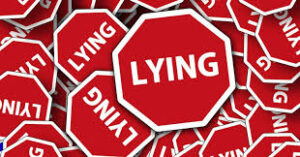 No one should be surprised that the “big lie” has become gospel in White evangelical churches. The New York Times reports: “In the 17 months since the presidential election, pastors at these churches have preached about fraudulent votes and vague claims of election meddling. … For these church leaders, Mr. Trump’s narrative of the 2020 election has become a prominent strain in an apocalyptic vision of the left running amok.”
No one should be surprised that the “big lie” has become gospel in White evangelical churches. The New York Times reports: “In the 17 months since the presidential election, pastors at these churches have preached about fraudulent votes and vague claims of election meddling. … For these church leaders, Mr. Trump’s narrative of the 2020 election has become a prominent strain in an apocalyptic vision of the left running amok.”
If anti-critical-race-theory crusades are the response to racial empathy, then laws designed to make voting harder or to subvert elections are the answer to the GOP’s defeat in 2020, which the right still refuses to concede. The election has been transformed into a plot against right-wingers that must be rectified by further marginalizing those outside their movement.
Our political problems are significant, but they are minor compared with the moral confusion that is afflicting the millions of White Christian Americans who consider themselves victims. Left unaddressed, this will smother calls for empathy, tolerance and justice.
The Plough and Feather
I have always remembered when I had an exceptional fish, I have written about consuming barramundi directly caught in the Gut at Wyndham and eating them on a Good Friday when the temperature was over 40 degrees centigrade. Remembering such seafood encounters is just one of my idiosyncrasies.
I remember sitting at a table by the window in a hotel overlooking the Cambridge Backs, having ordered a Dover sole and being presented with it, pan fried, filling the plate. Every time I came to England I would order Dover sole. Fresh sole is just not available here in Australia; yes I also like to eat its cousin, the flounder. A colleague would regularly go “floundering” in Port Phillip Bay and bring back some for dinner. Flounder is similar in appearance to sole, but Dover sole has a distinctive taste accentuated by its flamboyant presentation as I said smothering the plate with a few potatoes. However, what singled this particular sole encounter out and made it memorable was that Stephen Hawking was wheeled past along in the path outside during our meal. You may say a different form of singularity.
I have collected a whole memory of fish dinners.
The latest was in a nondescript white weatherboard building with a wrap-around veranda. It houses the Plough and Feather restaurant with both inside and outside an odd variety of chairs and tables giving it a slight eccentricity. But the outlook over the Kerikeri tidal basin was exceptional on these sunny couple of days when there was no wind and the temperature hovered around the mid-20s centigrade. Across the gravel and asphalt lay the oldest building in New Zealand, the Old Stone Store, part of the missionary legacy and built between 1832 and 1836. It was a real village idyll!

But it was the food that made my day. In particular, it was the Bluenose, also known as bluenose trevalla or cod, a steel-coloured reef fish with a blunt snout found only in the waters around New Zealand. It is described, when I later read about it, as “succulent”. I would agree; it was a great eating fish. I had never heard of it before I saw it on the menu.
It brought back memories of years ago when I was taken out for lunch at a restaurant overlooking the Indian Ocean in Geraldton and being presented with bald chin groper, itself a local fish found in the sea around the Abrolhos on the menu. Again, I had never heard of bald chin groper.
We were later taken out for a weekend on the Abrolhos, a line of coral reefs about 60 kilometres off the Coral Coast, where privileged burghers of Geraldton may be seen at weekends. Then there was an abundance of seafood – crayfish every meal if you wanted it.
The similarity between the two sites, Kerikeri and Geraldton, was in the unexpected nature of the encounter with these pan fried fish and the magnificent taste of each coupled with the presentation of each on the plate. It is a strange characteristic with fish; they may be described as oily or not, they can be described by colour and texture – but when it comes to taste, it is fleeting – distinctive yet indescribable. Neither etched on your taste buds nor in your brain.
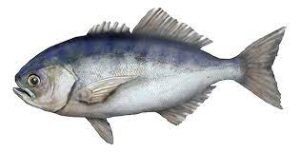
Let’s be honest. My fish stories are a shorthand way of conveying some the most pleasurable epicurean moments of my life. Please excuse this indulgence. I can assure you that there are more dots along the Jack Best Seafood Trail.
Mouse Whisper
When does Turkey become Peru?
When you consider the bird to be Portuguese.
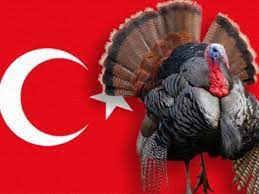

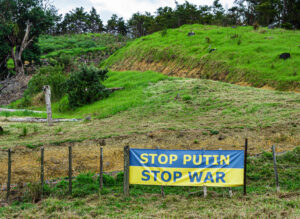 Overlooking wild surf beaches, through rolling forested areas, past marae on the road between Russell and Whangerei was the sign in Ukrainian colours “Stop Putin – Stop War”.
Overlooking wild surf beaches, through rolling forested areas, past marae on the road between Russell and Whangerei was the sign in Ukrainian colours “Stop Putin – Stop War”.

 Dr Allen as reflected in her pronouncements is deeply embedded in the Liberal Party, and once stood for the seat of Prahran. Her electorate at one end represents the environment in which she has lived for her 40 years. Her electorate encompasses the dilemma of once being safe, now redistributed to include areas which traditionally are more Labor in orientation.
Dr Allen as reflected in her pronouncements is deeply embedded in the Liberal Party, and once stood for the seat of Prahran. Her electorate at one end represents the environment in which she has lived for her 40 years. Her electorate encompasses the dilemma of once being safe, now redistributed to include areas which traditionally are more Labor in orientation.
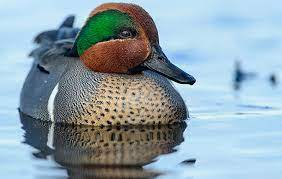 The colour “teal” comes from the green flash on the side of the teal duck’s head (teal comes the old Dutch word for this bird). Well, the colour is not actually green but a shade of blue admixed. To me the colour of the bird’s head is more a metallic green sometimes seen as the colour of souped up Holdens. However, those who have appropriated the colour for political purposes as was attempted in New Zealand in an aborted attempt to form an alliance between the Greens and the conservative blue Nationals left the colour as its legacy.
The colour “teal” comes from the green flash on the side of the teal duck’s head (teal comes the old Dutch word for this bird). Well, the colour is not actually green but a shade of blue admixed. To me the colour of the bird’s head is more a metallic green sometimes seen as the colour of souped up Holdens. However, those who have appropriated the colour for political purposes as was attempted in New Zealand in an aborted attempt to form an alliance between the Greens and the conservative blue Nationals left the colour as its legacy.

 The 1993 election is always mentioned in the context of the birthday cake episode in which Mike Willesee in interviewing John Hewson asked him the effect of GST on the price of a birthday cake. Hewson gave a qualified reply, as any honest politician should give, but his answer was transposed into a triumphant fourth estate “gotcha”.
The 1993 election is always mentioned in the context of the birthday cake episode in which Mike Willesee in interviewing John Hewson asked him the effect of GST on the price of a birthday cake. Hewson gave a qualified reply, as any honest politician should give, but his answer was transposed into a triumphant fourth estate “gotcha”.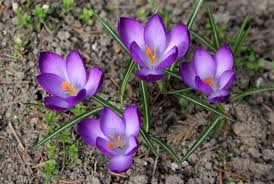
 I am a pilgrim with a P/C, a bag of hessian straggling along the cyber pathway, lined by an array of “punitive cybresses”.
I am a pilgrim with a P/C, a bag of hessian straggling along the cyber pathway, lined by an array of “punitive cybresses”.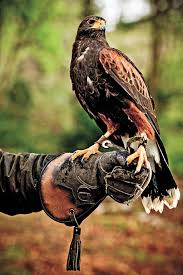
 For almost two years, the right wing has framed the mask issue as one of personal liberty. And many of the rest of us think of masking in terms of personal risk: If we’re not at risk, we’re thrilled to dispense with the discomfort and inconvenience of an N95.
For almost two years, the right wing has framed the mask issue as one of personal liberty. And many of the rest of us think of masking in terms of personal risk: If we’re not at risk, we’re thrilled to dispense with the discomfort and inconvenience of an N95. 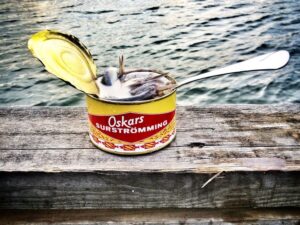
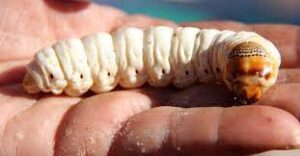 Wonderful in these latter years, there are always questions about dietary idiosyncrasies wherever you are invited out. When one was young, you ate what you were given – swedes, watery marrow and overcooked pork forever irrigated through my memory.
Wonderful in these latter years, there are always questions about dietary idiosyncrasies wherever you are invited out. When one was young, you ate what you were given – swedes, watery marrow and overcooked pork forever irrigated through my memory.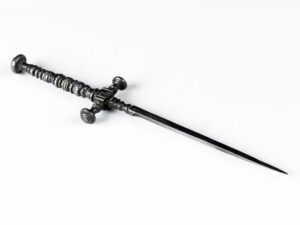 What Australia needs at this point in time is a Savonarola who thinks like Macchiavelli. A national cleanser who has a fine feel for the dorsal stiletto.
What Australia needs at this point in time is a Savonarola who thinks like Macchiavelli. A national cleanser who has a fine feel for the dorsal stiletto.
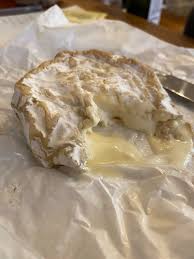

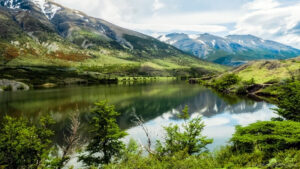
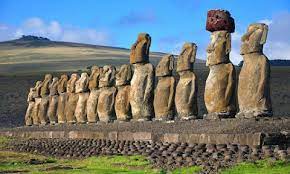


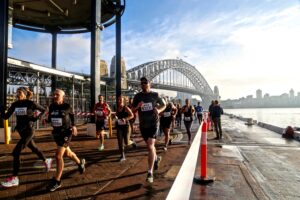 At one stage, I used to go for a run every day around the suburb, which contained many hills. Given that I instinctively loathed exercise, the surge of endorphins countered so effectively this loathing, that many times during a year I would engage what were laughingly caused “Fun Runs”. As I aged, the runs became long early morning walks; and then disease caught up and exercise became biweekly hydrotherapy sessions; and then with COVID causing the closure of the pools, desultory infrequent rambles – the walking restricted to climbing stairs, back stretches. This article in the NYT gave me some hope. I have edited the original article, but have noted the contribution from a University of Sydney expert.
At one stage, I used to go for a run every day around the suburb, which contained many hills. Given that I instinctively loathed exercise, the surge of endorphins countered so effectively this loathing, that many times during a year I would engage what were laughingly caused “Fun Runs”. As I aged, the runs became long early morning walks; and then disease caught up and exercise became biweekly hydrotherapy sessions; and then with COVID causing the closure of the pools, desultory infrequent rambles – the walking restricted to climbing stairs, back stretches. This article in the NYT gave me some hope. I have edited the original article, but have noted the contribution from a University of Sydney expert.





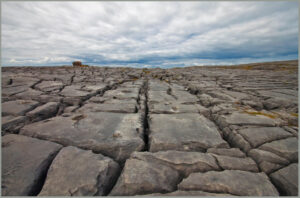
 Albanese, you addressed them, but see how the Murdoch Press tried to mangle you? As the Robot’s catchcry in Lost in Space goes: “Warning, warning, warning!” Rather apt, I would think – on many fronts!
Albanese, you addressed them, but see how the Murdoch Press tried to mangle you? As the Robot’s catchcry in Lost in Space goes: “Warning, warning, warning!” Rather apt, I would think – on many fronts!

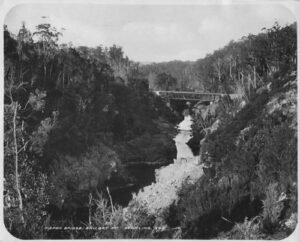
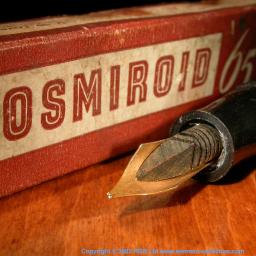


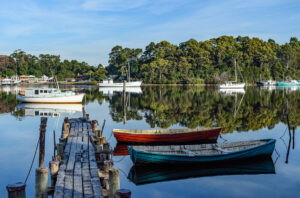
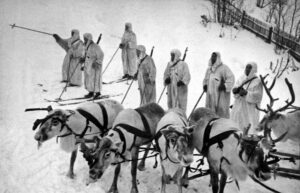

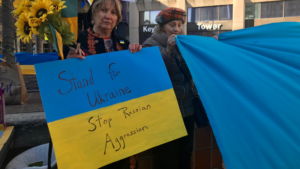
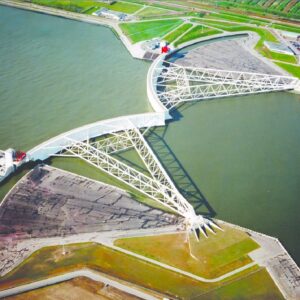
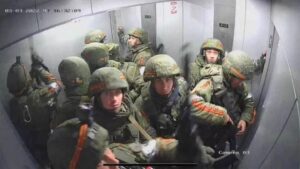

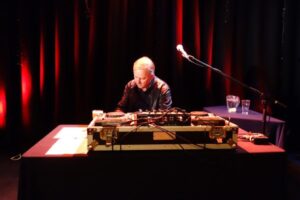

 The wasabi that comes in tubes and packets and is familiar to many diners is actually a blend of wasabi and horseradish dyed green — or contains no wasabi at all. In Japan, chefs at higher-end sushi, soba or grilled beef restaurants grate fresh wasabi at the counter, so customers can experience the acute assault on their nostrils and the unique flavour that lingers for just a moment on the tongue.
The wasabi that comes in tubes and packets and is familiar to many diners is actually a blend of wasabi and horseradish dyed green — or contains no wasabi at all. In Japan, chefs at higher-end sushi, soba or grilled beef restaurants grate fresh wasabi at the counter, so customers can experience the acute assault on their nostrils and the unique flavour that lingers for just a moment on the tongue.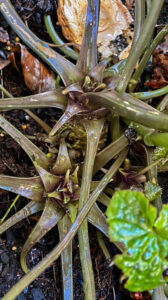 Now, as that wizard green fingered jardineira, Vicki Sheedy, says dismissively, horseradish is a weed. You have to grow it in a pot and not let it get control of the vegetable patch.
Now, as that wizard green fingered jardineira, Vicki Sheedy, says dismissively, horseradish is a weed. You have to grow it in a pot and not let it get control of the vegetable patch.
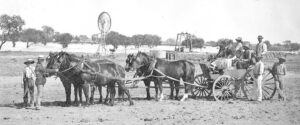 In the 1840s my mother’s family came to Australia from Katowice, which is a major Polish town today but was then Prussia. They settled first in the Barossa Valley but with a shortage of land available there, they walked with their wagons, from South Australia to settle in southern NSW. My maternal mother was a Schröeter. My mother would have been a wonderful subject for “Who do you think you are?”
In the 1840s my mother’s family came to Australia from Katowice, which is a major Polish town today but was then Prussia. They settled first in the Barossa Valley but with a shortage of land available there, they walked with their wagons, from South Australia to settle in southern NSW. My maternal mother was a Schröeter. My mother would have been a wonderful subject for “Who do you think you are?” As of Monday afternoon here, the Russian Olympic Committee team had won 18 medals, the second-highest total behind Norway. But maybe there should be a new category for its medals? “Provisionally won?”, “Won … for now?” “Won, pending further info?”
As of Monday afternoon here, the Russian Olympic Committee team had won 18 medals, the second-highest total behind Norway. But maybe there should be a new category for its medals? “Provisionally won?”, “Won … for now?” “Won, pending further info?”

 In the last blog I, who once was a tall poppy but tried to dance with the “wolverines”, gave some advice based on this experience. I once knew a person who, like Grace Tame, had a strong profile (at one stage being pictured on every evening edition of the Melbourne Herald depicting the successful beautiful young professional) and saw later at firsthand what she endured.
In the last blog I, who once was a tall poppy but tried to dance with the “wolverines”, gave some advice based on this experience. I once knew a person who, like Grace Tame, had a strong profile (at one stage being pictured on every evening edition of the Melbourne Herald depicting the successful beautiful young professional) and saw later at firsthand what she endured.
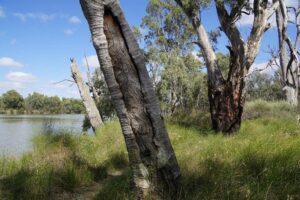
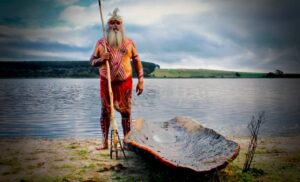
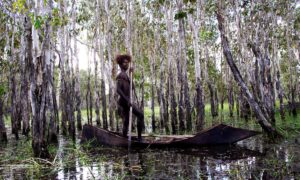

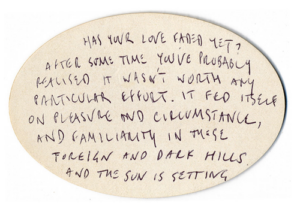

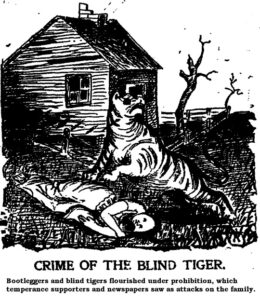

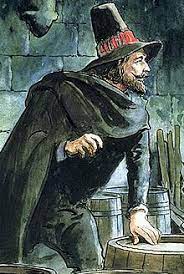
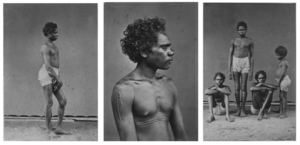

 Morrison has cultivated the image of the family man who consults his wife, and treasures his children, Albanese is a divorced man with a tearaway son, Nathan. He was married to a fellow politician.
Morrison has cultivated the image of the family man who consults his wife, and treasures his children, Albanese is a divorced man with a tearaway son, Nathan. He was married to a fellow politician.
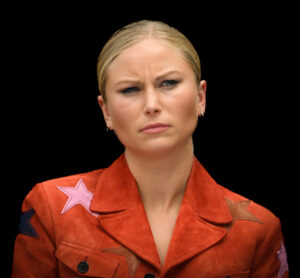
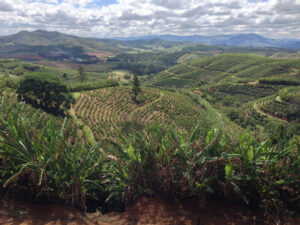
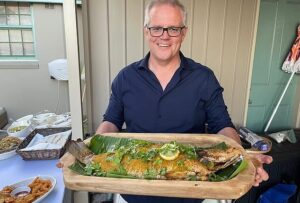




 My memory of this time was jogged by the Boulia Shire sign, which appears in the opening credits of the ABC’s Backroads program. Not that I watch this very popular program much. I, like the ABC presenters, have visited many of the places they have gone to see, and they have their own perspective.
My memory of this time was jogged by the Boulia Shire sign, which appears in the opening credits of the ABC’s Backroads program. Not that I watch this very popular program much. I, like the ABC presenters, have visited many of the places they have gone to see, and they have their own perspective.
